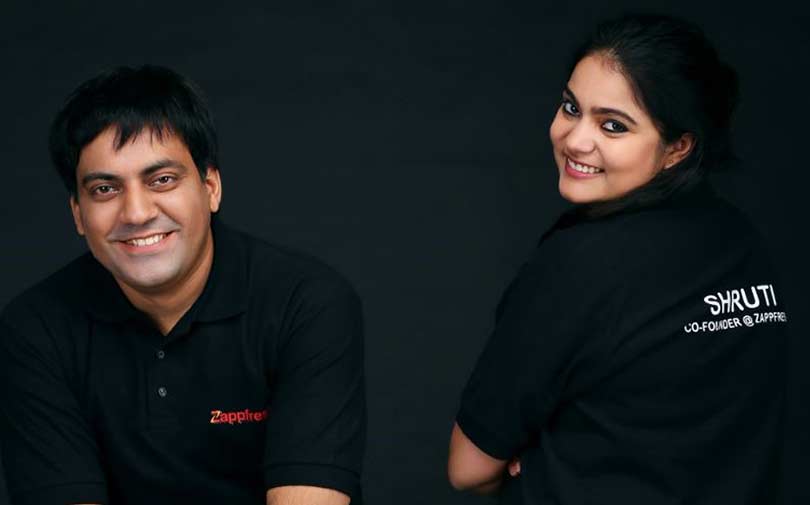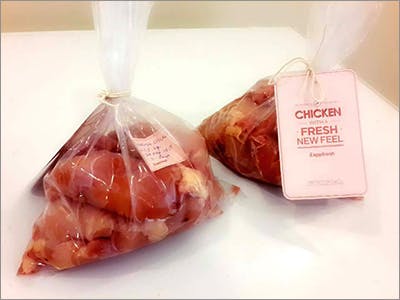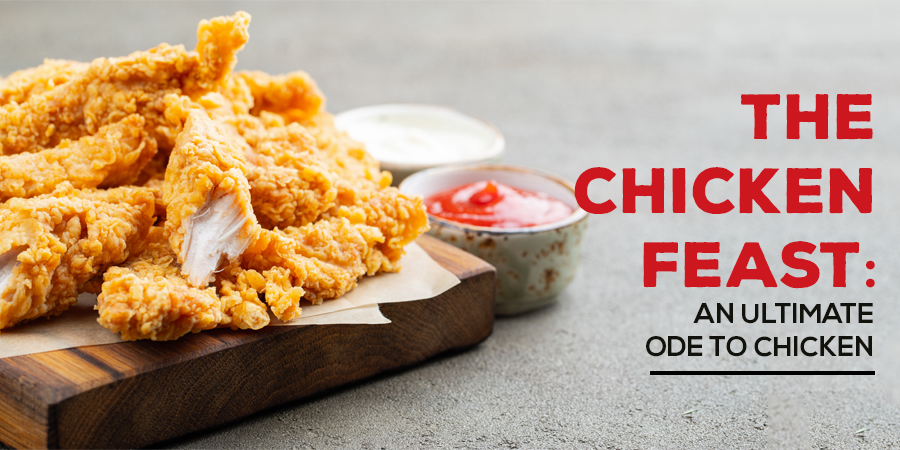
17
October
From door-to-door salesman to CEO, here’s the story of Zappfresh’s Deepanshu Manchanda
Deepanshu Manchanda started his career as a door-to-door salesman for Kurkure and is now the CEO of Zappfresh, which delivers nearly 1,000 meat and seafood orders every single day. Going to local markets to buy meat or fish may not always be the best experience. But not many foodies prefer frozen meat as the taste is […]
Deepanshu Manchanda started his career as a door-to-door salesman for Kurkure and is now the CEO of Zappfresh, which delivers nearly 1,000 meat and seafood orders every single day.
Going to local markets to buy meat or fish may not always be the best experience. But not many foodies prefer frozen meat as the taste is often subpar compared to fresh meat. And the addition of preservatives is a different story altogether – a difficult one.
To counter these issues, Deepanshu Manchanda co-founded Gurugram-based Zappfresh, which aims to make meat-eating a pleasant experience. The company procures its meat and fish from local farms, processes them at hygienic and well-maintained plants, and customises pieces before delivering them to the customer at the earliest.
Zappfresh claims to have 4x year-on-year revenue growth and currently delivers across Delhi, Ghaziabad, Gurugram, Faridabad and Noida. The founders say that they receive up to 1,000 orders each day, with curry-piece chicken being the most popular, followed by mutton and seafood, priced at around Rs 600 per portion.
From Kurkure salesman to CEO
Deepanshu Manchanda, the 33-year old co-founder and CEO, had interned at the sales department of Frito-Lay during his MBA days. His job was to sell Diwali corporate packs of corn puffs and Kurkure to around 12 corporate houses every day.
“I was really passionate and high on energy about working in the FMCG sector. I took the project very seriously and was also one of the top performers. Unfortunately, I was not given a pre-placement offer,” says Deepanshu.
He then went on to sell credit cards at American Express and later became the strategic lead at MobiKwik.
However, the charm of the FMCG market kept attracting Deepanshu, and he took the entrepreneurial plunge in 2013 by starting his first food venture – Choc’o’leaf, a Delhi-based online bakery. But, he soon realised that the bakery market was too large and “not disruptive enough”.
After spending eight months on research and development, Deepanshu, along with 27-year-old Shruti Gocchwal, an ex-colleague from MobiKwik, founded Zappfresh in early 2015. Shruti, now Director at the company, also leads the finance team.
Zappfresh currently has a team of 150 people across the technology, R&D, operations and marketing divisions.
The business behind meat
Deepanshu and Shruti decided on starting up in this market because it was dominated by unorganised players. “Zappfresh is India’s first technology-integrated fresh meat brand,” claims Deepanshu, and says that the startup will transform meat-buying experience for Indian customers.
The FSSAI- and ISO-compliant company procures its meat from local farms in Haryana as well as fish and seafood from partners across the coasts of Gujarat and Andhra Pradesh. By buying the meat and fish directly from them, it aims to avoid unhygienic butchering practices.
Zappfresh says that the meat and fish it sells are free of antibiotics and formalin. The meat is also free from antibiotics, growth hormones and preservatives. “We deliver meat through a unique end-to-end supply cold chain that ensures consistent freshness from farm to table, without freezing or exposing it to any preservatives or water,” says Deepanshu.
Once the products reach the processing unit, they are housed in a strict, temperature-controlled environment. After quality checks, they are segregated for temperature-controlled packaging under hygienic conditions. The double-layered packaging helps retain the temperature. Besides chicken, mutton and seafood, Zappfresh also delivers cold cuts and ready-to-eat products like kebabs and sausages.
Orders can be placed online or through their app, and the company has delivery executives ensuring same-day delivery, or at a prescribed hour.
Zappfresh’s growth so far
Zappfresh has built technology in-house to control the supply chain and claims to use blockchain technology for traceability. The company also has an algorithm to forecast demand, and has also tightened quality controls at farms.

With a 24×7 customer assist programme, Zappfresh has a 92 percent repeat customer rate and has improved its packaging to extend product shelf life.
Initially bootstrapped with Rs 30 lakh, with savings and loans combined, it raised Rs 20 crore from SIDBI and Amit Burman, Vice-chairman of Dabur India.
“Technological developments can help this industry to grow at the greater pace. The business model and the technology used to lure the customer is very innovative. The rapid increase in ‘omnivores’ in India has amplified the evolution of Zappfresh,” claims Amit.
Investor Sajit Kumar, Senior VP at SIDBI VC, says, “The online brand has a distinctive technology at heart and a unique supply chain, which is a big differentiator. The ‘farm to fork’ format and seamless customer experience is its USP.”
The company has a B2C and a B2B revenue model and sells products through BigBasket. It is also associated with cold chain company ColdEX. It counts TajSATS, Andhra Bhavan and Lite Bite foods among its institutional clients.
“The price of our meat is almost the same as charged by local vendors,” says Deepanshu, adding that Zappfresh also has flexible pricing, which means that prices change depending on market conditions.
Market and competition
According to the Sample Registration System (SRS) 2014 survey, 71 percent of Indians over the age of 15 are non-vegetarians, and India consumes meat worth $30 billion each year.
Reports also suggest 90 percent of the demand for meat in the country is handled by the unorganised sector. In fact, meat is the only category in the $300 billion grocery market that does not function in an organised manner.
Zappfresh’s immediate competition, Licious, raised $25 million from Bertelsmann and Vertex Ventures last month. Other players in this space include FreshtoHome, Hibachi and Fishchain. However, the meat industry is highly untapped and “a healthy competitor only adds to the growth,” says Deepanshu.
While the company is currently focussed on Delhi-NCR, it plans to extend operations to another metro city by next year.


